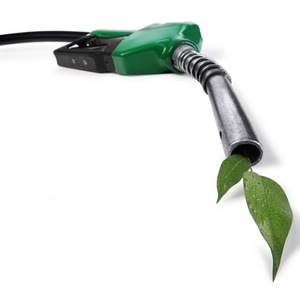Report finds biofuels offer economic means to meet GHG goals

September 26, 2013
BY Erin Krueger
U.K.-based Element Energy recently published a report finding that biofuels offer a more cost-effective way to reduce greenhouse gas emissions over the next 17 years, when compared to electric vehicles. The report, titled “The Role of Biofuels Beyond 2020,” was commissioned by BP.
The U.K. has set targets calling for an 80 percent reduction in greenhouse gases (GHGs) by 2050 when compared to a 1990 baseline. While electric plug-in and hydrogen vehicles are expected to play a significant role in meeting this goal in the transportation sector over the long term, the report notes the vehicle fleet will continue to be dominated by vehicles utilizing internal combustion engines through 2030. Therefore, biofuels will continue to play an important role in GHG reductions moving forward.
Advertisement
The study evaluates the future biofuels could play in meeting the U.K.’s GHG reduction goals based on a three specific sets of assumptions. A “low biofuels” case is considered, in which biofuel conventional biofuels are blended at rates of E10 and B7. A “medium biofuels” case assumes E20 is introduced in 2020, with an increasing share of cellulosic ethanol. Finally, a “high biofuels” case looks at the GHG reduction impact of blending biobased butanol and drop-in biofuels at high rates.
According to Element Energy, the medium biofuels case would result in a 9 percent reduction in emissions by 2030 compared to the baseline, while high biofuels case would result in a 27 percent GHG reduction. The report also indicates that based on current cost projections, the high biofuel scenario would cost approximately £123 ($196.86) per metric ton of carbon dioxide avoided. The cost for the medium biofuel scenario would be only £80 per ton of carbon dioxide avoided.
The study concludes that when compared to the use of battery electric vehicles, biofuel blending is a far cheaper way to reduce emissions through 2030. The use of biofuels would translate into an average £13 annual cost increase for consumers, compared to a £195 annualized cost for battery electric vehicles. Overall, achieving GHG savings through plug-in vehicles over the 2030 timeframe is estimated to cost the U.K. an additional £1.23 billion, significantly more than the £336 million cost premium for biofuels.
Advertisement
“In the long term, electric plug–in and fuel cell vehicles are likely to play a significant role in the transport mix. But we also expect high numbers of [internal combustion engine]-derived vehicles to still be in circulation by 2030, so lower carbon liquid fuels have to play a major part in meeting the U.K.’s CO2 targets,” said Alex Steward, associate director of Element Energy. “Biofuels also offer a more cost effective way to reduce emissions over the next 17 years, with a fuel premium of £336m in 2030 against the £1.2bn it would cost in customer incentives to achieve the same CO2 savings with plug-in vehicles.”
A full copy of the report can be downloaded from the Element Energy website.
Related Stories
The U.S EPA on July 17 released data showing more than 1.9 billion RINs were generated under the RFS during June, down 11% when compared to the same month of last year. Total RIN generation for the first half of 2025 reached 11.17 billion.
The U.S. EPA on July 17 published updated small refinery exemption (SRE) data, reporting that six new SRE petitions have been filed under the RFS during the past month. A total of 195 SRE petitions are now pending.
European biodiesel producer Greenergy on July 10 confirmed plans to shut down its biodiesel plant in Immingham, Lincolnshire, U.K. The company temporarily suspended operations at the facility earlier this year.
Aemetis Inc., a renewable natural gas and biofuels company, announced on July 17 that its India subsidiary, Universal Biofuels, appointed Anjaneyulu Ganji as chief financial officer, effective July 17.
Avia Solutions Group, the world's largest ACMI (aircraft, crew, maintenance, and insurance) provider, has partnered with DHL Express to reduce greenhouse gas emissions from its international shipments using SAF.
Upcoming Events










